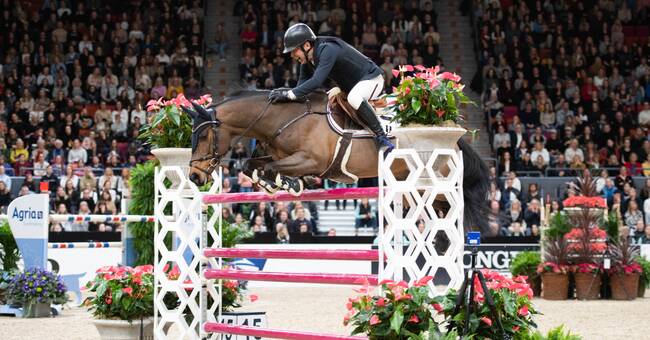Dozens of European countries raised red flags for competitions earlier this week, as a result of the serious virus outbreak in Valencia in February.
To date, six horses have died since being infected with EHV-1, also known as the abortion virus.
A large number of horses are cared for and about a hundred, several of them from Sweden, are quarantined in Valencia.
- 32 Swedish horses are left in Valencia.
Great efforts are being made there.
Work is underway to eventually take that gang home, says Andrea Barth, the association's operations manager for sports and competition.
The spread of infection in Sweden is low, but the federal board made the decision on Friday to pause the competition activities until March 28.
Can be extended
The competition ban can be extended.
If this happens, there is a great risk that the World Cup finals in jumping and dressage (March 31-April 4) in Gothenburg will be canceled.
- We share the union's thoughts on being careful.
That's really good.
In practice, this means that qualifying competitions are canceled.
We are working on, but will continue to have close contacts with the Swedish and international federation, says competition leader Tomas Torgersen.
The association sees a risk of an outbreak of the aggressive abortion virus as Swedish horses are currently being transported home after interrupted competitions in Spain, Portugal and Italy.
- Many horses go home, many have done so, now the rest comes and it can increase the infection pressure here in Sweden, says Ulf Brömster.
Federal veterinarian Peter Kallings points out that outbreaks of EVH-1 are not uncommon, but this time he is more worried.
- It is believed that it is a more aggressive form, we have not seen one of similar magnitude in Europe before.
It has become more noticeably dramatic, he says.
"A difficult situation"
Vaccines can bite on some forms of EVH-1, just like humans in covid-19.
- But it does not take on the neurological form.
There is really no real treatment and no vaccine, so it is a difficult situation, says Kallings.
- Those who come home are strongly recommended to isolate all horses that come to Sweden for two weeks.
If they have been in Valencia in Doha, three weeks apply.
Check the position
If the horse is ill, isolation is required for one month.
- And two negative tests are required to be on the track again, says Kallings.
- We should not exaggerate and create hysteria, here it is important that we are proactive and have everything up if or when something happens.
I think we have the situation under control, he says.
The competition ban affects several organizers around Sweden.
- It is very sad to cancel after all of last year's canceled competitions.
But this is the reality right now, says Andrea Barth.
CLIP: Deadly horse virus worries Europe (March 2, 2021)
Javascript is disabled
Javascript must be turned on to play video
Read more about browser support
The browser is not supported
SVT does not support playback in your browser.
We therefore recommend that you switch to another browser.
Read more about browser support
Deadly horse virus worries Europe

